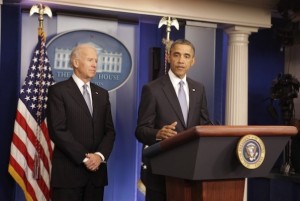First Nations University implemented federal income tax changes for payroll deductions
 First Nations University has reported that they will start implementing federal income tax changes for their employee payroll deductions. Those employees who work in Prince Albert and Saskatoon will be treated under new federal income tax changes in their next payroll. First Nations University official also told that all the employees from various campuses will go through provincial income tax deductions. New federal income tax will be validated for Regina campus of First Nations University to all other campuses.
First Nations University has reported that they will start implementing federal income tax changes for their employee payroll deductions. Those employees who work in Prince Albert and Saskatoon will be treated under new federal income tax changes in their next payroll. First Nations University official also told that all the employees from various campuses will go through provincial income tax deductions. New federal income tax will be validated for Regina campus of First Nations University to all other campuses.
New federal income tax changes will start working from January 1, 2013. Workers at Regina campus will continue to exempt from their federal income tax, reported the First Nations University officials. University put the exemption first time in 2003 and now officials have understood that it has been applied too widely. VP of finance, Mr. Juliano Tupone announced that changes will be implemented and they are not going to fight it. Federal income tax will be based on new income tax brackets for First Nations University employees and new updates will be followed by the University. He added that they are working with the relevant parties to assist their employees as much as possible.
Mr. Tupone said that university administration wants to follow all the tax rules. Later on, a broadcasting company tried to contact the federal government about these updates but they declined to discuss about the issue. Further updates are expected this week once federal government comments about the new tax changes.
Categories: Federal Tax, Income Tax, Tax Law Tags: corporate tax, federal income tax, federal tax, payroll tax, tax increase, tax law, tax reform, tax the rich
Federal income tax changes to your January paychecks
 Obama administration and US congress have agreed to the 2013 federal income tax rates, but it may affect your January paychecks. The Washington leaders are busy in a talk about 2013 income tax negotiations, but still no final agreement has been reached. UC process the payroll payments to many employees early in January and you will continue with federal income tax rates of 2012 till President Barrack Obama and Congress reach a final agreement and implement new guidelines for 2013 federal income tax brackets.
Obama administration and US congress have agreed to the 2013 federal income tax rates, but it may affect your January paychecks. The Washington leaders are busy in a talk about 2013 income tax negotiations, but still no final agreement has been reached. UC process the payroll payments to many employees early in January and you will continue with federal income tax rates of 2012 till President Barrack Obama and Congress reach a final agreement and implement new guidelines for 2013 federal income tax brackets.
The new tax rates will be published once IRS offers the official guidelines and organizations will need to upgrade their payroll structure accordingly. Federal income tax rates for 2013 will be published along with IRS publications and new payroll system will not make any adjustments after fully implementation of new tax rates. But it is important to know that January paychecks will reflect the two tax changes;
- The updated 2013 California income tax rates resulting from income passage of Governor Brown and sales tax initiatives for 2013, under proposition 30.
- QASDI social security of employee will be updated from current value of 4.2 percent to new value of 6.2 percent tax rate.
It means 25 percent federal income tax along with 38.3 percent Medicare payroll taxes and 13.3 percent social security are going to federal income tax in 2012. For a middle-class tax filer, the average state income tax is 4.82 percent, which brings 43.12% to state and federal taxes.
Categories: Federal Tax, Income Tax, Tax Law Tags: corporate tax, federal income tax, federal tax, income tax, payroll tax, tax code, tax increase, tax reform
What Happens After the Fiscal Cliff?
 As the fiscal cliff looms, efforts are being made to avert the cliff, but little progress is being made. Some lawmakers are predicting that increases in federal income taxes and federal spending cuts will begin to take hold this coming January, unless there are strides made to complete the deal.
As the fiscal cliff looms, efforts are being made to avert the cliff, but little progress is being made. Some lawmakers are predicting that increases in federal income taxes and federal spending cuts will begin to take hold this coming January, unless there are strides made to complete the deal.
With the possibility of such changes happening, the economy stands to be hit by a great jolt. In some predictions economists predict that another recession could be veryconceivable. If the nation were to fall over the so called “cliff”, consumer spending power will greatly decrease and the federal government will see an annual tax increase of about 500 billion dollars. While this will cut the federal budget deficit by a considerable amount, it will be at a great economic price.
According to the Tax Policy Center, on average the federal income tax bill will increase by $3,500. And the average middle income home will see an increase of about $2,000.
If the fiscal cliff actually becomes a reality, federal income taxes will be greatly affected. On December 31, the low ordinary federal income tax, put in place by former president George W. Bush, will expire. An extension by President Obama and Congress was agreed upon in the end of 2010, but this extension will only have a few days remaining. Along with this lapse in the low ordinary federal income tax, Americans will see rates increase up to 15, 28, 31, 36, and 39.6% from the current 10, 15, 25, 28, 33, and 35%.
There is an effort being made by President Obama and his fellow Democrats to extend the Bush era tax rates, but this would only be for those who make less than $200,000 or for a family making less than $250,000. For the rest of those who don’t fall into this category federal income tax rates would increase to the higher pre-Bush era.
Categories: Federal Tax, Income Tax, Tax Law Tags: federal income tax, federal tax, income tax, payroll tax, tax code, tax law, tax reform

